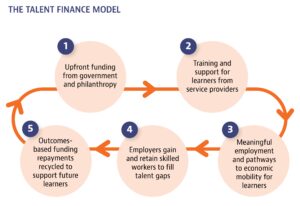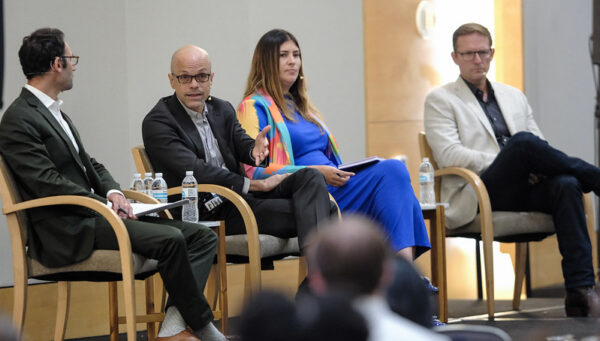Key Highlights
Challenges
Workers face limited economic mobility because of a shortage of stable, well-paid jobs that require “middle skills” (i.e., more training than a high school diploma but less than a bachelor’s degree). Many are unable to pay for career and technical education and/or lack other necessary support, such as child care and transportation. As a result, the United States has a shortage of workers who can fill the middle-skill jobs created by recent investments in infrastructure.
Opportunities
Recent government investments in infrastructure offer significant opportunities to create middle-skill jobs in career pathways offering upward economic mobility. Public-private “talent finance” partnerships — which include governmental agencies, philanthropies, employers, and providers of skills training and supportive services — can expand training to deploy workers for these jobs at a greater scale than would be possible through training grants alone.
Talent Finance has three key elements:
- Payments are made in advance to organizations delivering training and supportive services to program participants. These payments are tied to outcomes for the learner-workers.
- Holistic support is offered to learner-workers in addition to career and technical training.
- Repayments from workers, or from employers who hire and retain participants from these training programs, are recycled to finance training and services for future workers.

Key Takeaways
- Public investment can create a greener infrastructure while improving the lives of American workers through skills development to fill new, well-paying jobs.
- Partnerships that share risk among governmental agencies, philanthropies, employers, and training partners create more effective, sustainable programs.



